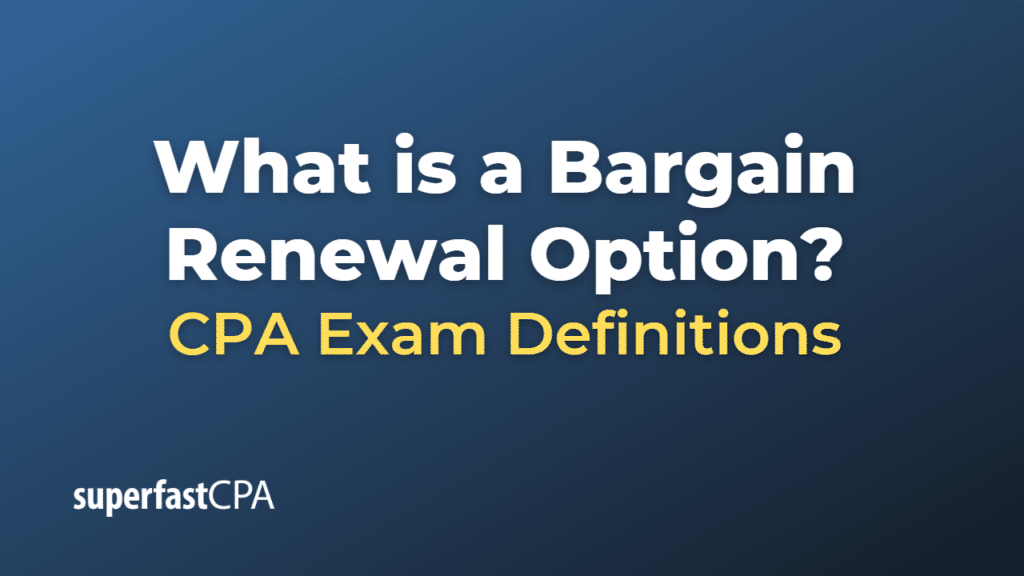Bargain Renewal Option
A bargain renewal option is a provision in a lease agreement that allows the lessee (the party leasing the asset) to extend the lease term at a rental rate significantly below the fair market rental rate for the asset. This option can be attractive to lessees who anticipate a continued need for the asset after the initial lease term and want to secure a favorable rental rate for the renewal period.
In the context of accounting, the presence of a bargain renewal option can also impact the classification of a lease. Under both International Financial Reporting Standards (IFRS) and the U.S. Generally Accepted Accounting Principles (GAAP), if a lease contains a bargain renewal option that the lessee is reasonably certain to exercise, the lease term used for lease classification and accounting purposes may include the renewal period.
The classification of a lease as a finance lease (or capital lease under the previous U.S. GAAP rules) or an operating lease can have significant financial reporting and tax implications for the lessee. Including the renewal period in the lease term due to a bargain renewal option can affect the lease classification and the pattern of expense recognition over the lease term.
It is important to note that the definition of “bargain renewal option” and the specific criteria for lease classification can vary between IFRS and GAAP, so it is essential to refer to the relevant accounting standards for the appropriate treatment of such options.
Example of a Bargain Renewal Option
Let’s consider a fictional example of a bargain renewal option in a lease agreement involving an office space.
Company A is a growing tech startup looking for office space to accommodate its expanding workforce. Company A finds a suitable office space and enters into a 5-year lease agreement with Company B, the property owner. The lease agreement includes a bargain renewal option, allowing Company A to extend the lease for an additional 5 years at a rental rate significantly below the expected fair market rental rate at the time of renewal.
The initial lease term has a monthly rental rate of $10,000. At the end of the initial lease term, the fair market rental rate for similar office spaces is anticipated to be $12,000 per month. However, the bargain renewal option allows Company A to extend the lease for another 5 years at a fixed monthly rental rate of $8,000.
In this example, the presence of the bargain renewal option could impact the lease accounting for Company A. If Company A is reasonably certain to exercise the bargain renewal option, the lease term used for lease classification and accounting purposes may include the renewal period, resulting in a 10-year lease term.
The inclusion of the renewal period in the lease term can affect the lease classification under IFRS and GAAP, as well as the pattern of expense recognition throughout the lease term. It is essential for Company A to carefully assess its intentions regarding the renewal option and consult the relevant accounting standards for the appropriate treatment of the bargain renewal option in its financial reporting.













